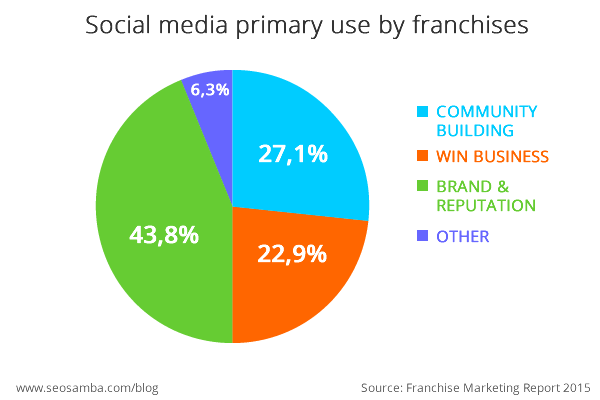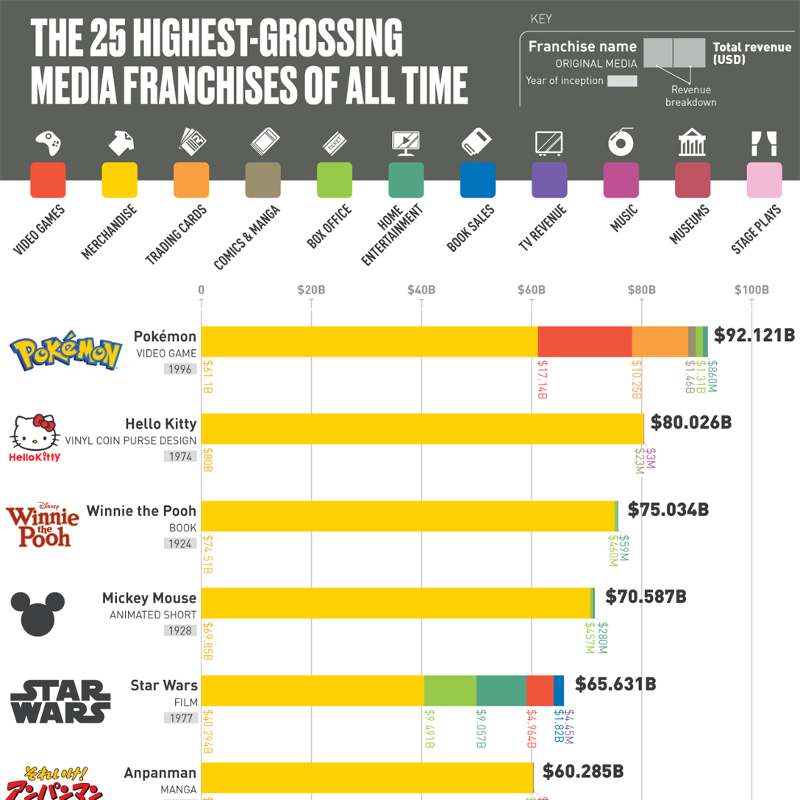Il termine inglese media franchise si riferisce alla costruzione di un marchio che viene sfruttato per diversi prodotti dell’industria dello spettacolo e dell’intrattenimento.
I franchise ragionano come un tetris: ogni prodotto si incastra con l’altro, viene progettato in armonia con gli altri prodotti dello stesso franchise.
HARRY BROWN, VIDEOGAMES AND EDUCATION
A media franchise is a collection of related media in which several derivative works have been produced from an original creative work, such as a film, a work of literature, a television program or a video game. The intellectual property from the work can be licensed to other parties or partners for further derivative works and commercial exploitation across a range of media and by a variety of industries for merchandising purposes. A media franchise often consists of cross-marketing across more than one medium. For the owners, the goal of increasing profit through diversity can extend the commercial profitability of the franchise and can create strong feelings of identity and ownership in its consumers. Aarseth describes the financial logic of cost-recovery for expensive productions by identifying that a single medium launch is a lost opportunity, the timeliness of the production and release is more important than its integrity, the releases should raise brand awareness and the cross-ability of the work is critical for its success. American Idol was a transmedia franchise from its beginnings, with the first season winner Kelly Clarkson signing with RCA Records and having the release of A Moment Like This becoming a #1 hit on Billboard Hot 100. The success resulted in a nationwide concert tour, an American Idol book that made the bestseller list and the film From Justin to Kelly.
A transmedia franchise however is often referred to by the simpler term “media franchise.” The term media franchise is often used to describe the popular adaptation of a work into films, like the popular Twilight book series that was adapted into the five films of The Twilight Saga. Other neologisms exist to describe various franchise types including “metaseries,” which can be used to describe works such as Isaac Asimov’s Foundation series. Multimedia franchises usually develop through a character or fictional world becoming popular in one medium, and then expanding to others through licensing agreements, with respect to intellectual property in the franchise’s characters and settings. As one author explains, “or the studios, a home-run is a film from which a multimedia ‘franchise’ can be generated; the colossally expensive creation of cross-media conglomerates predicated on synergistic rewards provides an obvious imperative to develop such products.”
The trend later developed wherein franchises would be launched in multiple forms of media simultaneously: “In one of the most celebrated ventures in media convergence, Larry and Andy Wachowski, creators of The Matrix trilogy, produced the game Enter the Matrix (2003) simultaneously with the last two films of the trilogy, shooting scenes for the game on the movie’s sets with the movie’s actors, and releasing the game on the same day as The Matrix Reloaded. Likewise, on September 21, 2004, Lucasfilm jointly released a new DVD box set of the original Star Wars trilogy with Star Wars: Battlefront, a combat game in which players can reenact battles from all six Star Wars films. In 2005, Peter Jackson likewise produced his blockbuster film King Kong (2005) in tandem with a successful King Kong game designed by Michael Ancel and published by Ubisoft. In the last several years, numerous licensed videogame adaptations of major summer and holiday blockbusters were released a few days before or a few days after their respective films, including: all three Star Wars films (1999–2005); all five Harry Potter films (2001–2008); all three Spider-Man films (2002–2007); Hulk (2003); The Lord of the Rings: The Two Towers (2002); The Lord of the Rings: The Return of the King (2003); The Chronicles of Narnia: The Lion, the Witch, and the Wardrobe (2005); Pirates of the Caribbean: Dead Man’s Chest (2006); Pirates of the Caribbean: At World’s End (2007); and Transformers (2007). These multimedia franchises have made it more difficult to distinguish the production of films and videogames as separate enterprises”.
Marta Gaia Ceccotti



